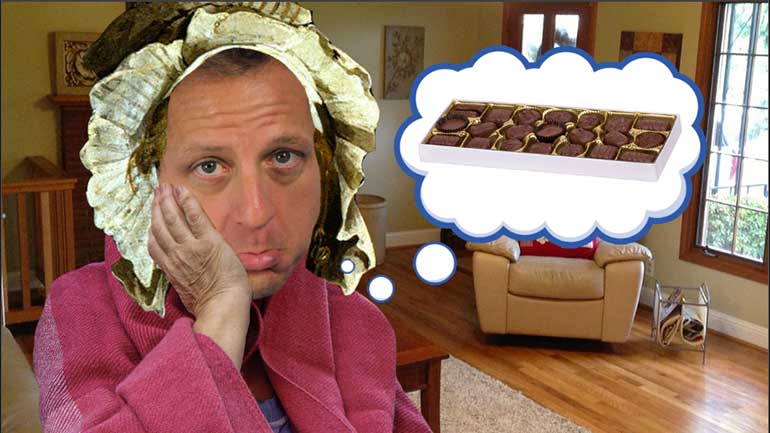ShmoopTube
Where Monty Python meets your 10th grade teacher.
Search Thousands of Shmoop Videos
History of Technology 2: Space 21 Views
Share It!
Description:
Where we're going, we don't need roads. ...Oh, that was misleading. We're not going to the future. We're going to space. Sorry for any disappointment.
Transcript
- 00:00
by the 1950s humanity figured it only had one more place to go.
- 00:07
Kalamazoo. what? No who wrote that this is? why you should never let the interns do
- 00:12
anything around here. schmuck. not Kalamazoo space. space was the actual [businesswoman gives presenation]
- 00:18
answer we were looking for. home of eternal cold darkness and intelligent
- 00:23
beings with a penchant for giving out free probing colonoscopies. yeah aliens
Full Transcript
- 00:29
might not have been impressed but we Earthlings had seriously come a long way
- 00:32
by the time the 1950s rolled around. in fact we'll just go ahead and shoot this
- 00:38
one right here transportation technology was spectacularly advanced. yeah - - no
- 00:44
we weren't beaming each other up Scotty not quite yet we still got a long way to
- 00:48
go on that one but we've come a long way from the hunter-gatherer days when our
- 00:52
main source of transportation was running or walking for those not in a [caveman walks]
- 00:58
rush but by the 1950s Jets could take us across the ocean in a few hours.
- 01:02
more and more Americans owned cars there was a massive national highway system
- 01:07
and heavy goods were shipped by trains and steam ships. with a little bit of
- 01:11
money humans could go anywhere on the planet in less than a day
- 01:14
so just because tootin it was so fun the first time we'll do it again.
- 01:19
transportation technology had come a long way, but humans had one giant leap
- 01:25
left. and it wasn't Kalamazoo. space final frontier. well we had to explore strange
- 01:30
new worlds seek out new life and civilizations and yes boldly go where no
- 01:35
man or woman has gone before. Shatner would be disappointed if we didn't.
- 01:40
in 1961 the first human was sent into space. by 1969 Neil Armstrong had played
- 01:46
golf on the moon. even though most people on the planet won't get within a hundred [man walks on the moon]
- 01:50
miles of a space shuttle the era of space travel had opened new doors for
- 01:55
Humanity as a whole. if we want to fly into space pointing our bowling airliner
- 01:59
up and pressing the gas pedal isn't quite gonna work. there's no air in space
- 02:04
and a puny jet engine isn't strong enough to overcome gravity. anyway what
- 02:08
we needed was a rocket. easy-peasy right? actually
- 02:12
at all opposite of that Hardy party. lots of different guys around the world
- 02:16
experimented with different fuels nozzles and materials to build rockets
- 02:21
that might be able to get a heavy hunk of metal into space. by 1926 Robert
- 02:26
Godard had managed to find the magic combination a certain kind of hourglass [rocket under construction pictured]
- 02:31
shaped nozzle and liquid fuel. over the next two decades. Rockets got bigger and
- 02:36
better and people started to think seriously about getting into space which
- 02:41
is impressive considering we have to think seriously about whether or not
- 02:44
we're motivated to move off the couch to use the bathroom. [child eyes the bathroom]
Up Next
GED Social Studies 1.1 Civics and Government
Related Videos
When you're about to marry the love of your life, not many things could stop you. However, finding out that your future hubby is keeping his crazy...
Here at Shmoop, we work for kids, not just the bottom line. Founded by David Siminoff and his wife Ellen Siminoff, Shmoop was originally conceived...
ACT Math: Elementary Algebra Drill 4, Problem 5. What is the solution to the problem shown?




